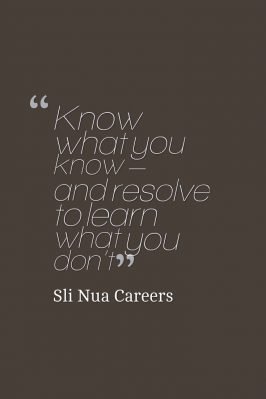Pic source www.pixabay.com
Interview Bluff
By Liam Horan, Career Coach & Managing Director, Sli Nua Careers

Q: I made a mistake. I know I did. And as I was making it, I knew it was a mistake. They asked me if I knew anything about Customer Relationship Management (CRM) software, specifically the MailChimp package. I said I had ‘used it a lot’ in a previous job (and silently resolved to study up on it after the interview just in case). But they called my bluff and asked how I would ‘create different customer segments’ in the package.
I huffed and puffed, and even bluffed a little. But I quickly ran out of gas, made my excuses and stopped. They were polite enough to move onto the next question. They’d heard enough. I didn’t get the job. I don’t really have a question to ask here. My experience in this interview speaks for itself.
The sickening thing is that I have a lot of experience of a number of CRM software packages and I’ve no doubt I’d have picked up MailChimp in couple of days. (DT, email).
A: Two roads diverged in a wood and all of that. You took a wrong turn – you are not the first person to do this in an interview – and, unfortunately, the drawbridge came down, writes Liam Horan, Career Coach, Sli Nua Careers.
Communication
I suspect the purpose of your communication is not for me to tell you that you made a mistake – you’ve offered that admission already yourself – but to elaborate so that others might avoid a repetition of your fate.
 At the core of this error was your desire to avoid showing a weakness. That’s where your problem started. Too often, interview candidates view the revelation of a weakness as effectively killing their chances.
At the core of this error was your desire to avoid showing a weakness. That’s where your problem started. Too often, interview candidates view the revelation of a weakness as effectively killing their chances.
Mind-set
This is a mind-set candidates must guard against. In interviews, is perfectly acceptable to show a weakness: nobody, not even the most stellar of candidates, has everything nailed down.
There are almost as many CRM packages as there are customers. It is impossible to know them all. One man’s MailChimp is another man’s ‘what the hell is that?’. As you said, you know a number of CRM packages and you could easily have adapted to MailChimp if necessary.
So what you should have sold is not your specific experience of MailChimp – which you don’t have – but your overall experience of CRM programmes, and your willingness to learn new ones. You should have talked about the basic principles of CRM programmes being the same from one to the other. And that their value lies in how well companies deploy them to intuitively meet their customers’ needs or expectations. Chances are that would have been more than enough.
Caught out on a lie
However, by being caught out on a lie, you raised a worry for the interview panel. What else were you bluffing about? What else did you claim you knew, but didn’t? It was an uncomfortable, and extremely damaging, dynamic in the interview.
Sell yourself
The aim in any interview is to sell yourself: but not to the extent that you oversell. I have written here before about interview candidates placing extreme pressure on themselves to appear stronger than they are. This extends to putting pressure on themselves to speak without an ‘um’ or an ‘ah’ for 45 minutes – that, too, is unachievable.
Candidates, give yourselves a break. Know what you know – and resolve to learn what you don’t. Be honest. They don’t expect you to score ten out of ten in every single category.
If you would like to make a booking with any of our career coaches, see HERE for CV Preparation, Application Form writing, LinkedIn Profile writing, Interview Training and other career services.
Liam Horan is a Career Coach with Sli Nua Careers, who have offices in Bandon, Galway, Limerick, Navan, Athlone, Sligo and Mayo, plus a full online service. Their services include CV preparation, interview training, personal statements and application forms.